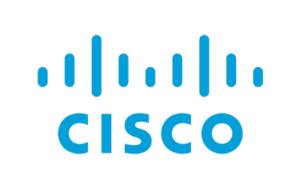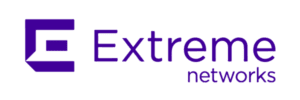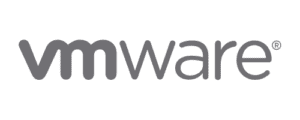
Enterprise networking companies enable organizations to route, connect, assign and manage resources more dynamically, intelligently, and easily—often through increased automation and AI, and improved monitoring. All of this has led to a more agile, flexible, and cost-effective framework for managing a digital enterprise.
In the era of multicloud computing, enterprise networking companies play a greater role than ever before. As clouds have matured, so has the software-defined data center, and software-defined networking (SDN) has emerged at the center of the industry, though it hasn’t completely replaced legacy frameworks.
Below, Datamation chose 10 of the top vendors in the enterprise networking space along with some of the key features and capabilities they offer.
Also read: The Networking Market

HPE-Aruba consistently ranks at the top of the enterprise networking solutions space and is known for its focus on unified networks. Aruba delivers SDN to scale along with an end-to-end interface. It offers zero-touch provisioning and end-to-end orchestration within a single pane of glass. It handles automated policy enforcement for the user, device, and app in both wired and wireless networking.
The platform also supports a high level of programmability through Python scripting and APIs, and a variety of cloud-based solutions designed to streamline IT operations and boost performance in SD-WANs. Users rank the company high for user experience, reconfigurability, and cybersecurity.
Aruba recently acquired Silver Peak Systems, a leader in the SD-WAN space. The platform unifies SD-WAN, firewall, segmentation, routing, WAN optimization, and more—with advanced orchestration and automated lifecycle management, self-learning capabilities through machine learning, and more.
For pricing, go to the Hewlett Packard Enterprise shop page.
To learn more about HPE perspective: Q&A on Networking With Scott Calzia at Aruba

Arista Networks promotes the concept of “cognitive networking” and clouds through SDN. It supports unified edge systems across networks through a portfolio of products.
The vendor offers a variety of products and solutions designed for enterprise networking. Its Cognitive Campus solution optimizes cloud solutions, specifically for performance, using an analytics-driven approach that focuses heavily on cybersecurity, visibility, and location-based services.
The software-driven approach aims to reduce networking complexity, improve reliability and performance, and boost network monitoring and security functions. The vendor’s Cognitive Management Plane incorporates artificial intelligence and a repository to automate numerous actions.
For pricing, reach out to Arista Networks’ Contact Sales page.
For more on Arista Networks: Arista: Networking Portfolio Review

Cisco Systems is an undisputed leader in networking, and key expertise and products for almost every possible organization and business need, from carrier-grade equipment to enterprise data center solutions.
Cisco Digital Network Architecture is at the heart of the company’s offerings. Cisco DNA relies on a software-delivered approach to automate systems and assure services within a campus and across branch networks and WANs.
It is designed to work across multi-cloud environments, with AI/ML tools to automate, analyze, and optimize performance and thwart security threats. Key components include automated workflows, analytics, behavioral tools, SD-WAN, and other software-defined offerings designed for both Ethernet and wireless.
In addition, the company receives high marks for its switches, routers, hardware and software, SD-WAN products, and enterprise network security tools.
Pricing for the Cisco Systems’ networking package is listed here or customers can reach out by contacting sales.
For more information: Cisco Report Shows Cybersecurity Resilience as Top of Mind

Cumulus Networks, now part of NVIDIA, delivers real-time visibility, troubleshooting, and lifecycle management functions as part of its Cumulus NetQ solution.
Cumulus promotes a “holistic” approach to networking. With roots in the Linux world, it delivers automated solutions without specialized hardware. Forrester describes the approach as an “app-dev perspective.”
Cumulus includes a robust set of tools and controls that tackle advanced telemetry, deep analytics, and lifecycle management. For example, NetQ uses specialized agents to collect telemetry information across an entire network and provide real-time insight, including state changes for data centers.
Diagnostics tools allow administrators to trace network paths, replay network states at a specific time point in the past, and review fabric-wide event change logs. The platform supports rich scripting and configuration tools.
For pricing, go to NVIDIA’s Shop Networking Products page.
For more on networking: 5 Top Cloud Networking Trends

Dell Technologies offers a robust and highly-rated portfolio of enterprise solutions. The company offers a wide array of products and solutions for enterprise networks, including Ethernet switches, wireless gear, smart fabric management software, services for automated fabric management, network operating systems, and various products and tools that facilitate SDN.
Dell Technologies also focuses on maximizing connectivity at the edge with cloud integration: integrated hardware and software solutions for SD-WAN and clouds. This enables autonomous fabric deployment, expansion, and lifecycle management for software-defined infrastructures.
The company aims to “meet the demands of modern workloads and virtualization environments while greatly simplifying deployments and management” through a single pane of glass.
To see pricing on networking tools, go to the Dell Technologies Shop.
For more: Dell Technologies: Networking Portfolio Review

Extreme Networks offers switching, routing, analytics, security, and other management solutions. The Extreme Networks product line is defined by Extreme Cloud IQ, a platform that automates end-to-end, edge-to-data-center network operations through the use of AI and machine learning. It is designed to scale to more than 10,000 managed devices per wireless appliance and includes comparative analytics and ML-driven scorecards.
Extreme Management Center provides on-premises network management in a variety of networking environments. In the realm of unified communications, Extreme Campus Controller delivers wired and wireless orchestration for campus and IoT networks.
For pricing, go to Extreme Networks’ How to Buy page.
For more information: Extreme Networks: Networking Portfolio Review

Juniper Networks has established itself as an innovator and leader in the enterprise networking space. Juniper Networks places a heavy emphasis on smart automation within a single, consistent operating system. It receives high marks for manageability and simplicity.
Juniper offers a wide array of enterprise networking solutions designed for nearly any requirement. This includes equipment for switching, routing, wireless, packet optical, SDN, and network security. These solutions address enterprise requirements for enterprise WAN, campus networking, cloud-native, multi-cloud, 5G, and IoT/IoT devices. The vendor’s Contrail Networking solution is entirely focused on SDN.
For pricing, go to Juniper Networks contact sales.
For more information: Juniper Networks: Networking Portfolio Review

NETSCOUT offers a full spectrum of products and solutions designed to support digital transformation, managed services, and digital security.
NETSCOUT prides itself on delivering complete visibility within networks and clouds, as well as real-time actionable intelligence using machine learning and smart analytics. These tools help organizations gain deeper visibility into data centers, cloud frameworks, performance issues, and security risks.
One of the vendor’s strengths is its technology partners, which include AWS, VMware, Microsoft, Oracle, and Cisco Systems. NETSCOUT supports numerous vertical industries, including healthcare, retail, transportation, financial services, and government.
For pricing, follow the product tab and choose the product you want, then click the Try a Demo page.
For more information about networking: 10 Top Companies Hiring for Networking Jobs

Riverbed Technology focuses on four key factors: performance, applications, visibility, and networks. It achieves results through WAN optimization, application acceleration, software-defined WAN, and network performance management modules. The Riverbed Network and Application Performance Platform are designed to “visualize, optimize, accelerate, and remediate the performance of any network for any application.”
The open platform effectively ties together performance management, WAN optimization, application acceleration, and SD-WAN solutions. Another Riverbed product, Steelhead, delivers a technology foundation for maximizing and optimizing the efficiency and performance of networks, including SaaS products. The focus is on network performance and efficiency through information streamlining, transport streamlining, application streamlining, and elastic performance.
For pricing, go to Riverbed Technology’s Free Trial Options.

VMware was a pioneer in virtualization products and solutions. Over two decades, it has distinguished itself as an industry leader with its focus on supporting multi-cloud environments, virtual cloud networking, and solutions designed to support digital business.
The company offers a network solution for several industry verticals, including retail, healthcare, financial services, manufacturing, education, and government. It has numerous partnerships that make it an attractive choice for enterprises. A core tenant for VMware is building a digital foundation.
VMware Tanzu offers products and services designed to modernize application and network infrastructure. This includes building cloud applications, advancing existing apps, and running and managing Kubernetes in Multiple Clouds. VMware’s Virtual Cloud Network provides a seamless, secure, software-defined networking layer across networking environments. The company’s VMware VRNI, which is designed to troubleshoot network issues and cyber security, is highly rated among reviewers at Gartner Peer Insights.
For pricing, go to VMware’s store page.
For more on VMware: VMware NSX Review
The networking market is incredibly complicated and confusing. Dozens of vendors compete for mind share and market share. Adding to the challenge: every organization has different requirements and each solution approaches the task of networking in different ways. As SDN becomes more popular, this adds to the decision-making process. In some cases, differences among vendors, products, and approaches are subtle—yet exceptionally important. Here are five key things to consider when making a selection:
While all vendors promise a high level of flexibility and agility, it’s not so simple to sort everything out. Success depends on your existing infrastructure—including branch offices—and how well the current environment matches the vendor’s solution. This means taking an inventory of your current environment and understanding how the solution will change—and improve—processes. Interoperability, APIs, and support for frameworks like BiDi and SWDM might factor into the situation.
While high marks from industry analyst firms like Gartner and Forrester are no guarantee of success, they serve as an excellent benchmark for understanding where a vendor resides among its peers, what features stand out, and where a vendor lags behind the pack. Magic Quadrant and Wave report also inject objectivity into what can become a subjective and sometimes emotional process. It’s also wise to read peer reviews at various professional sites and trade information with others in your industry.
The cheapest solution isn’t necessarily the best, of course. Your goal should be to understand switching costs and find the sweet spot on the return on investment (ROI) curve. What tradeoffs are you willing to make to save money? Which features and capabilities are non-negotiable? Which solution can unlock the connectivity you require to be an innovator or disruptor?
Several factors that can fly below the radar are critical when selecting a vendor. Among them are financial stability, roadmap, and vision, knowledgeability of their engineers and technical staff, and customer support. The latter can be critical. You should have a clear point of contact with the company, and this person should be highly accessible. If you can’t get a strong commitment upfront, this could be a problem. Regardless, it’s wise to lock down key issues and service levels with a service level agreement (SLA).
The days of selecting a single vendor for everything are pretty much over. In all likelihood, you will need networking products and solutions that span geographic locations, data centers, clouds, and more. In addition, you will likely have to mix and match some products.
Do the vendor’s offerings play nicely with others? Do they adhere to industry standards? Do they support open source? What kind of service provider are they for wireless network needs, like the management and deployment of mobile devices? What security standards do they adhere to? How well can they work with your existing network if you’re looking to make a shift?
Choosing the enterprise networking solution provider is critical. As SDN becomes a centerpiece of the industry, it’s important to understand how various solutions approach networking, including whether a vendor uses a standard approach or places a hypervisor over a virtual network.
Although all enterprise networking solutions presumably address the same general tasks—centralizing complex management and administrative functions and improving manageability—the way products work varies greatly. This includes various features that vendors offer, how network management tools interact with other IT systems, troubleshooting and security capabilities built into products, and, most importantly, understanding the specific needs of an organization.
Read next: Network Security Market

Datamation is the leading industry resource for B2B data professionals and technology buyers. Datamation's focus is on providing insight into the latest trends and innovation in AI, data security, big data, and more, along with in-depth product recommendations and comparisons. More than 1.7M users gain insight and guidance from Datamation every year.
Advertise with TechnologyAdvice on Datamation and our other data and technology-focused platforms.
Advertise with Us
Property of TechnologyAdvice.
© 2025 TechnologyAdvice. All Rights Reserved
Advertiser Disclosure: Some of the products that appear on this
site are from companies from which TechnologyAdvice receives
compensation. This compensation may impact how and where products
appear on this site including, for example, the order in which
they appear. TechnologyAdvice does not include all companies
or all types of products available in the marketplace.